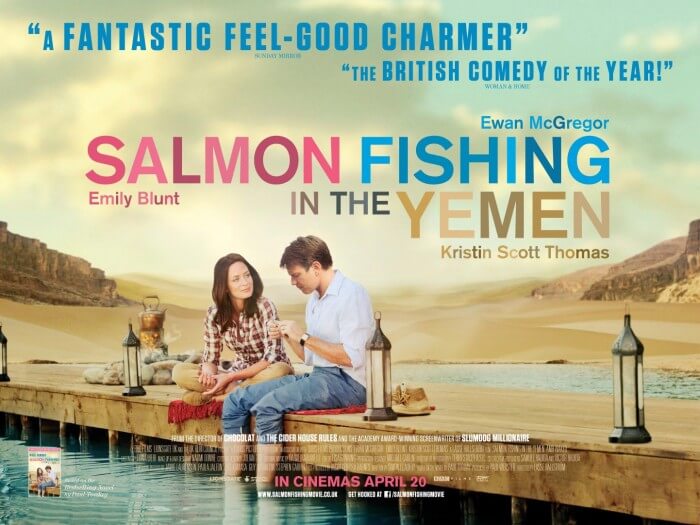“What are men compared to rocks and mountains?” spewed a cynical Elizabeth Bennett.
Perhaps you have heard that line before. It comes from one of my favorite books, the classic Pride and Prejudice by Jane Austen. For those of you unfamiliar with the storyline, let me paint a picture for you. Elizabeth and her sisters find themselves at the center of thick and complex love triangles. Our poor heroine, Elizabeth, has had the most unfortunate experience of having to deny not one, but two offers of marriage and disappointment at the discovery of her favorite man’s corrupted character, a regrettable event I am sure we can all identify with and sympathize.
Despite the cynicism in Elizabeth’s remark, there is something in it that resonates with me – that grabs my attention and has me unconsciously nodding my head in agreement. In modern day, “rocks and mountains” could be replaced by technology and towering sky scrapers. Either way, what is man, or the products of man, compared to the awesome design imagined by a master creator? I think her comment takes my viewing experience from mere entertainment purposes and gives it some sort of value because it puts to rest something that is often too exalted. Man. The products of man. And what man longs for and strives endlessly to achieve: success.
Now before you go labeling me a hippie, I am by no means one of those people who regards a Thoreau experience in the woods, away from all modernity and all that entails, as the holiest way of life. I am merely saying that this statement causes me to stop and think, to take man off the pedestal and re-evaluate what I consider his success to mean.
I grew up in a very nice area of beautiful Northern California. Nice suburb with an excellent school system; the kind where your best friends graduate and move on to the likes of Berkeley, UCLA, Pepperdine, Stanford and other top notch schools. You’re nothing extraordinary if you get above a 4.0 GPA. Case in point, it idealizes the world’s definition of success – with the student parking lot containing more BMW’s than I could count on one hand and its graduates becoming world class athletes, students and professionals. As a young woman well-trained in a Christian home and church atmosphere, I was taught not to value the world’s definition of success. So, I thought I had that part of life figured out. Money plus big business does NOT equal a great life. Check. Got it. Move on. I did after all, go against the grain and societal expectations, ditched the college thing and moved to the middle of nowhere Texas to attend a Christian internship. I was met with life-transforming challenges, encouragement, experience and training. Everyone else that bought into the typical life formula were just suckers. Clearly, no one understood not valuing the world’s notion of success better than me.
And then I moved back home, and everything was gone. There was no church community where I was doing fantastic ministry. No weekly mentorship and worship sessions, nights sharing testimonies, challenging physical and emotional experiences. There was just the same four walls of my room, and community college and working in retail folding shirts, while my college friends were off adventuring in their study abroad programs in China and Spain and other exotic places. There were no great quiet times or ministry moments to my heart, no reassurances from the Word that I was on the right path or doing the right thing. I didn’t necessarily think that God wasn’t there, it just didn’t FEEL like he was there. In fact, I questioned it a lot. I wondered if I had taken a wrong turn or missed a “God memo”.
And then I did what the Strengths Finder test told me I am good at. I began to think. I began to think that maybe my perception about what defines success was wrong. Maybe I had used all the cool stuff that happened at my internship in an attempt to hide behind my fear of falling behind in the world. Why wasn’t a smart kid like me in a top school? Why wasn’t the girl who had discipled a group of women for the past year having “intimate” and “inspirational” quiet times consistently (or at all really) in this time of transition?
You see, I hadn’t really swapped worldly notions of success with “holier” ones. I redefined the steps to success in a way that made me feel like I won. I was like the first graders I work with who make up the rules to games as they go to work to their best advantage.
And then I began to think that if I had done that sort of thing, then there were probably lots of other people in the Church that had done the same. What if the Church had created concepts of what defined a successful Christian life outside of Biblical contexts? You date someone a certain way, you study the Greek and Hebrew biblical texts, you become the head of a department at the church or a of a humanitarian nonprofit organization, your name is known, you make great cookies for Bible studies and pin cool Pinterest pictures.
Living and going to church in Texas (as well as California, but especially Texas), I saw that even fashion among church women can become some measure of success. Even in the Christian community we still desire the honorable and high places. We want the attention, we want to be known as a successful person, in whatever capacity that means.
Now let me make something extremely clear. The above mentioned are all good things. To make good cookies and know the ancient verbiage of the Scriptural texts and be highly regarded by your fellow men are all good things. The Bible praises good character and wisdom as well as the man who is respected at the gates and the woman who can run her household and affairs efficiently. But these are not the definition of success.
We sang a song in church recently with the verse “I was made for loving You.” I started doing that thinking thing again … I was made for loving You. I was not made for college. I was not made to wear cool clothes and look “relevant.” I was not made to be the director of a non-profit. I was not even made for a man. These things can be part of my loving God, but they cannot become my Tower of Babel.
I cannot make idols of the things that point me to Jesus or help me on my journey in loving Jesus. Success is this: to know God, and in knowing God, to become more like Him; it is “to be transformed into His likeness with ever increasing glory.” To love and obey His commandments. (1 John)
And that can happen whether or not people know my name, whether or not I lead anything or preach in front of large crowds or host great dinner parties. I cannot pretend to have forsaken the world’s idea of success only to trade it with one that is equally deceptive, that poses itself as kingdom-centered – and might very well have started that way – but is equally as dangerous an idol.
Slowly, I have begun to view my life choices in light of the concept of eternity. Are my decisions going to be easily consumed by the flame? Are they steps that will prepare me for eternity? Are they done out of motives of my heart that will carry with me into heaven?
I by no means claim to be a Mr. Miyagi when it comes to this, and I think success looks different for everyone. It depends on what tempts us, on the individual ways that we find identity and purpose and value. But the possibility of a false sense of success is very real for all of us.
To combat it, I think we need to take a hint from our dear friend Elizabeth Bennett (or her inventor, Jane Austen) and stop and think: who are we? What are our creations or doings or lives or anything, compared to the Master of them all?




